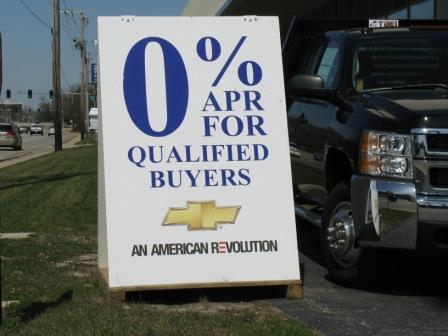
Quit Calling Us Consumers!
Consumer movement of 1960s and beyond improved American lives, but
it's time to recognize that most of us do much more than consume
by James M. FlammangUpdated: July 2021

Has "consumer" outlived its usefulness as a
term to identify people with complex lives?
Not long after Ralph Nader gained national notoriety with the publication of his critical book Unsafe At Any Speed, in the mid-1960s, the consumer movement was hatched. Consumerism achieved many significant victories over the next couple of decades - typically, after prolonged struggle. Without those efforts, a considerable amount of legislation that benefits all of us might never have come to pass. Automobile safety advances, penalties for fraudulent products and services, clearly-stated pricing policies, and much more may be credited to the foresighted luminaries and ardent activists of the consumer movement.
Yet now, in the computer/internet age, we've reached beyond the point of providing useful information to shoppers. People in search of helpful facts already have (or can quickly find) just about all the data and opinions they need, whether they're buying a car or home, attempting to secure a loan, or considering a lawsuit against a company that hasn't followed the rules of proper consumerist behavior.
Rather than pursue additional consumer issues, which inevitably gets reduced to the acquisition of more products, we need to get back to the notion of a full and balanced, broad-based life. That means a life with fewer goods, not more - and a lot less coveting of the latest commodities and luxuries.
Can't we finally get rid of the notion that "you are what you own?" In the end, consumerism has been something of a swindle: a guaranteed way to keep corporate profits up, by training generations of Americans to believe their major function is to shop, buy, and consume.
Those of us who've worked for consumer-focused organizations assumed that we were doing some ultimate good. Initially, that may have been true. Over the years, for example, I've contributed extensively to at least three publications with "Consumer" in their magazine titles. Providing helpful information to shoppers seemed like a worthy occupation. Only upon further, prolonged reflection did it become evident that ultimately, we helped intensify the consumer culture, not control and manage it.
Words matter, too. As long as we keep calling ourselves "consumers," we're likely to keep on ... well, consuming. Our major role in life has been named. Therefore, how can we say "no" to filling our homes with even more products, doing our prescribed duty as consumers?
For a fresh start as the 21st century roll along, we need a new name to designate our function, our purpose, and our consequent attitude.
So, then, if we're to be more than mere consumers, what are we? It's not an easy question to answer. We're each many things, but finding a single word that covers our major function in society is a challenge.
Plenty of alternative words might come quickly to mind. Customers. Participants. Users. Shoppers. Buyers. Citizens. Workers. Providers. Yet, none of these is much of an improvement.
Obviously, this will require considerably more thought. Names matter - a lot. So, a replacement term would have to be short, memorable, meaningful, and express our position in life two ways: As a person who gives to society, and also as one who takes from society. That's the trouble with consumer: It sends a message that all we do is consume, but (one hopes) that's only a modest portion of our daily existence. In addition to applying to everyone, a suitable term has to suggest that those in charge - the companies, the government, the decison-makers - need us as much as we need them.
2021 Update: Despite the passage of a dozen years since the above essay was written, no compelling alternative to the word "consumer" has leaped to mind. Plenty of additional possibilities have been considered: Patron. Resident. Producer. Individual. Utilizer. Toiler. No bells have rung for any of those. We've even pondered such delights as Thinker, Adventurer, Experiencer, and and (a tad less dramatic) Occupant. We'll keep on trying, searching more offbeat texts for possibilities.
One bit of good news has emerged lately, though: Growing numbers of young people, in particular, seem more inclined to resent being viewed merely as part of the consumer brigade.